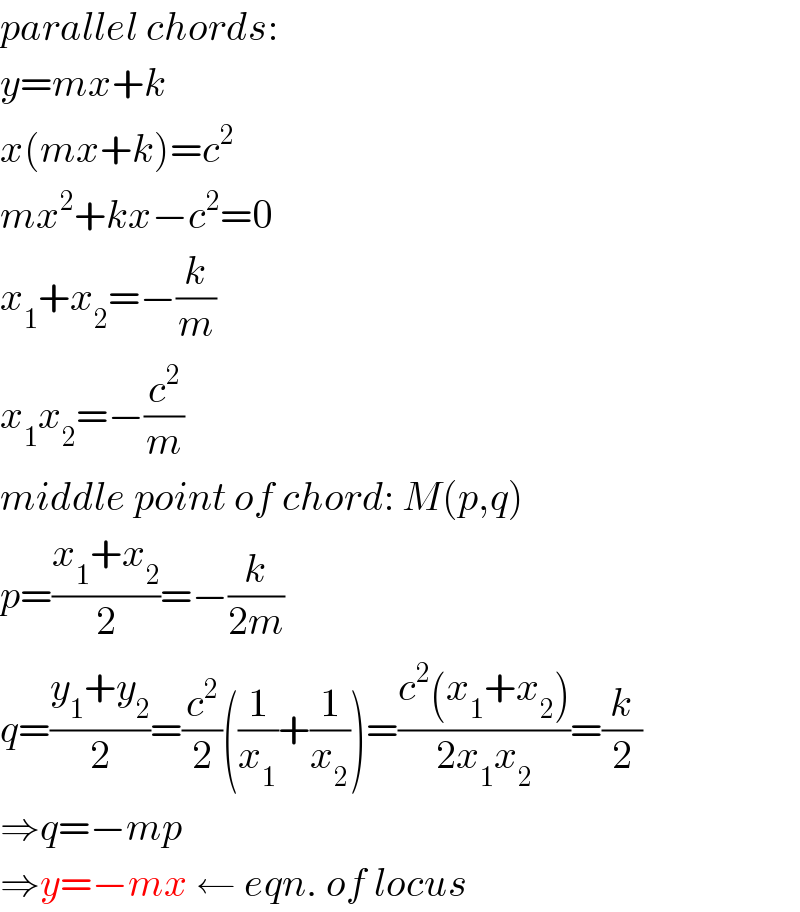Question Number 74817 by peter frank last updated on 01/Dec/19

Answered by mr W last updated on 03/Dec/19

$${parallel}\:{chords}: \\ $$$${y}={mx}+{k} \\ $$$${x}\left({mx}+{k}\right)={c}^{\mathrm{2}} \\ $$$${mx}^{\mathrm{2}} +{kx}−{c}^{\mathrm{2}} =\mathrm{0} \\ $$$${x}_{\mathrm{1}} +{x}_{\mathrm{2}} =−\frac{{k}}{{m}} \\ $$$${x}_{\mathrm{1}} {x}_{\mathrm{2}} =−\frac{{c}^{\mathrm{2}} }{{m}} \\ $$$${middle}\:{point}\:{of}\:{chord}:\:{M}\left({p},{q}\right) \\ $$$${p}=\frac{{x}_{\mathrm{1}} +{x}_{\mathrm{2}} }{\mathrm{2}}=−\frac{{k}}{\mathrm{2}{m}} \\ $$$${q}=\frac{{y}_{\mathrm{1}} +{y}_{\mathrm{2}} }{\mathrm{2}}=\frac{{c}^{\mathrm{2}} }{\mathrm{2}}\left(\frac{\mathrm{1}}{{x}_{\mathrm{1}} }+\frac{\mathrm{1}}{{x}_{\mathrm{2}} }\right)=\frac{{c}^{\mathrm{2}} \left({x}_{\mathrm{1}} +{x}_{\mathrm{2}} \right)}{\mathrm{2}{x}_{\mathrm{1}} {x}_{\mathrm{2}} }=\frac{{k}}{\mathrm{2}} \\ $$$$\Rightarrow{q}=−{mp} \\ $$$$\Rightarrow{y}=−{mx}\:\leftarrow\:{eqn}.\:{of}\:{locus} \\ $$
Commented by peter frank last updated on 06/Dec/19

$${thank}\:{you}\: \\ $$
